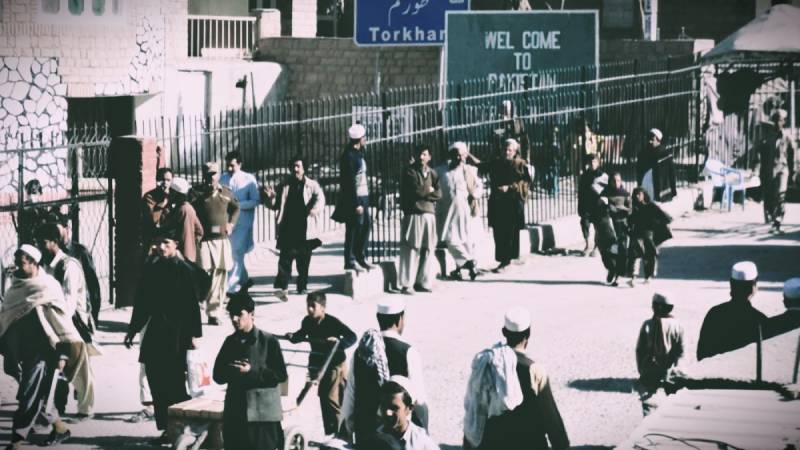
After nine agonising days, the border crossing with Afghanistan at Torkham reopened on Friday. Citizens and truckers alike crossed it with the fear that it may be shut down again at any moment owing to the absence of a 'proper agreement' between the two countries.
After successful talks between Pakistan and Afghanistan, the border was reopened for all kinds of traffic.
The pending agreements between the two countries can help avoid such abrupt and extended closure of borders at a moment's notice, leading to losses worth millions of dollars on both sides.
The border had been closed on September 6 when Pakistan said that Afghan border forces resorted to unprovoked and indiscriminate fire at Pakistani border guards and civilians queued up to cross over. Islamabad said that the incident happened when border troops warned their Afghan counterparts from building a checkpost on territory claimed by Pakistan. The Afghans, however, claimed that Pakistan opened fire while repairing an old, abandoned checkpost.
The past nine days, when the border remained closed, transit trade between the two nations was largely suspended, causing losses worth an estimated $5 million daily.
It is pertinent to note at this point that apart from Torkham (which connects with Nangarhar in Afghanistan), there are two other major border crossings between the two nations, at Chaman in Balochistan (connecting with Kandahar in Afghanistan) and Ghulam Khan in Khyber Pakhtunkhwa (connecting with Khost in Afghanistan) apart from several other smaller crossings.
The transit route has suffered from extended closures in the past as well due to political tensions, border clashes, natural disasters, visa issues and security concerns.
Some of the reasons are unavoidable, but many other reasons can be addressed if the two countries can formalise border agreements that the transit routes will not be suspended in case of political tensions between the two countries, background discussions with the Afghan-Pakistan experts revealed.
Free trade agreement needed
Talking To The Friday Times, Pakistan-Afghanistan Joint Chamber of Commerce and Industry Director Zahid Ullah Shinwari said that though the border has reopened after nine days, there is still no guarantee how long it will remain open or will be shut down for any reason.
The border has been closed on several occasions in the past, but neither side reached a permanent solution, resulting in heavy losses for traders on both sides, he said.
"A Preferential Trade Agreement (PTA), due to disinterest from Afghanistan, has been pending since 2014," he lamented, adding that a free trade agreement between the two sides will be a great solution to the issue, but it is only possible if both countries voluntarily enter the agreement.
Asked about the smuggling routes between the two countries, which is how the two states had unofficially traded for decades, Shinwari said that the trade never truly stops between the countries, adding that many traders opt for the alternative routes, whether official or unofficial if one route is closed.
He noted that alternative routes or smuggling paths could not even be plugged by the Allied forces when they controlled Afghanistan.
It may be mentioned here that this media outlet has already mentioned that the extended border closure has halted all trade, racking up heavy losses worth an estimated $5 million per day for traders on both sides of the crossing point.
Brief history of Torkham closure
The route was closed in 2014 for a few days due to a clash between Afghan and Pakistani border guards over the construction of a gate by Pakistan on its side.
In 2016, it was closed due to an attack on a population census team.
In 2017, the border remained closed for three days after a series of terrorist attacks.
In 2019, the Torkham border remained closed for two days after clashes between Afghan and Pakistani forces over the construction of a fence.
In 2020, this border was closed along with all other border crossing points as a precaution against the spread of the novel coronavirus (COVID-19).
Similarly, the border remained closed for two days after the Taliban captured Kabul, leading to a mass exodus of Afghan refugees in 2021.

